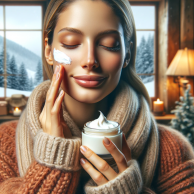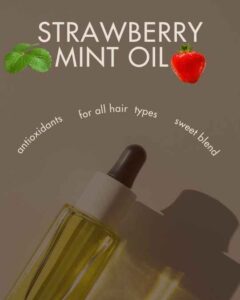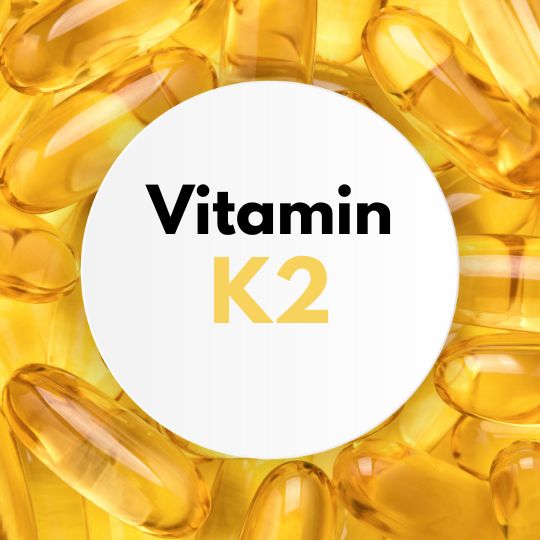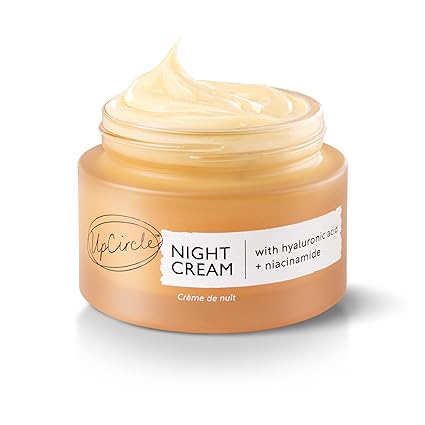In this complete guide we will explore the best winter skincare tactics and ingredients to maintain healthy and glowing skin throughout winter.The arrival of cold winds during winters has transformative effects on our skin. Cold air outside and heated interiors tend to strip the skin of its moisture, which in turn causes a number of problems such as dryness, flaking and irritation. Because, it’s especially difficult for people with delicate skin diseases such as eczema and psoriasis.
Table of Contents
Toggle1.Understanding Winter Skincare Challenges:
The first step in effective winter skincare is understanding the unique challenges this season presents. Unlike the humid summer months, winter is characterized by low humidity levels both outside and indoors due to heating systems. This lack of moisture in the air can dehydrate the skin, compromising its ability to protect itself and maintain elasticity.
2.Special Considerations for Sensitive Skin Conditions:
For those with skin conditions like eczema or psoriasis, winter can be particularly challenging. It’s crucial to use hypoallergenic and fragrance-free products to reduce the risk of irritation. Additionally, regular visits to a dermatologist can help manage these conditions more effectively during the winter months.
3.Facial Cleanser:
Choose a gentle, hydrating cleanser to avoid stripping your skin of its natural oils. Cream or lotion-based cleansers are ideal. A gentle facial cleanser is the cornerstone of any winter skincare routine. Dr. Goyes lie, a certified dermatologist based in New York City, advises choosing a cleanser that adds moisture to the skin rather than removing it. She suggests avoiding cleansers with alcohol and opting for those labeled gentle and moisturizing.
SEE ONLINE: Burt’s Bees Sensitive Solutions Calming Day Lotion
4.Body Cleansers:
Look for a thicker oil-based moisturizer that offers more moisture. Such ingredients as hyaluronic acid, glycerin and ceramides can be helpful. In cooler regions, such light lotions may not be enough. Better options can be creams, oils or balms. Applying moisturizer soon after shower to wet skin can help in keeping the skin hydrated. Your skin on the rest of your body also requires equal care. Creamy cleansers, preferably fragrance-free. For eczema-affected people, experts recommend looking for shea butter and silicones like petrolatum.In the winter skincare body cleansers are a great choice for everyone.
Before diving into the review, I want to be upfront about something. If you decide to purchase this product through the link provided at the end of this review, I’ll earn a small commission at no extra cost to you. This helps support my work and allows me to continue bringing you valuable content. Rest assured, my review is honest and based on my personal experience with the product.
SEE ONLINE: Vanicream Moisturizing Lotion
5.Lip Balm:
A good lip balm is essential to prevent chapped lips. Opt for ones with shea butter, vitamin E, or petroleum jelly.
6.Facial Moisturizers:
In winter, a heavier moisturizer is necessary to provide a protective barrier against harsh conditions. The importance of ingredients like hyaluronic acid, jojoba oil, and lactic acid in facial moisturizers. These components not only hydrate the skin but also gently exfoliate to remove dry, flaky patches. In especially winter skin care, facial Moisturizers play an important role for every type of skin.
7.Hand foot Cream:
Hands are frequently washed or subjected to cold weather. A moisturizing hand cream is a necessity in the winter skincare.The biggest challenge in winter however is the dry air which can lead to your feet and specifically your heels become very dried up and cracked. Use a thick, rich moisturizer created for feet. Look for substances such as urea, glycerin shea butter or petroleum jelly. Apply it at least morning and night, but most important right after you bathe while your skin is still damp to seal in moisture. At home use warm socks or slippers to keep your feet comfortable.
SEE ONLINE: O’Keeffe’s Giftbox Including Lip Repair with Cherry and Vitamin E Oil Stick, Working Hands Jar and Healthy Feet Jar
8.Sunscreen:
The myth is there is no necessity for Sunscreen in winter skincare. While UVB rays (the ones that cause sunburn) can be weaker in the winter months, UVA rays are consistent throughout all seasons. UVA rays go through clouds and even glass, so you’re in the clear. Snow and ice can reflect as much as 80% of UV rays, almost doubling your exposure, especially at higher altitudes where the intensity of radiation is higher. Sunscreen also contributes to overall skin health. It shields from sunburn, premature aging and even helps it maintain an overall tone.
9.Rejuvenating Products:
For an added boost of hydration, consider incorporating a serum or face oil into your routine. Winter might require a shift in your use of anti-aging products. Ingredients like glycolic acid, salicylic acid, and retinol, while beneficial, can be overly drying in colder weather. Using these products less frequently or switching to formulations with lower concentrations during winter months.
10.Exfoliate in winter skincare:
Use a gentle exfoliant every week to remove the dead skin cells from your face and improve its texture. Avoid rough scrubs and rather seek out chemical exfoliants such as AHAs or BHAs. Use intensive overnight masks or treatments to nourish and repair skin as you sleep.
11.Diet and Hydration:
While topical treatments are important, internal factors like hydration and nutrition also play a crucial role in skin health. Drinking plenty of water and consuming a balanced diet rich in omega-3 fatty acids and antioxidants can significantly improve skin hydration and overall health. Use dry fruit in small amount and drink water before eating it.
12.Protective Clothing:
Finally, protecting your skin from the cold air and wind is essential. Wearing gloves, scarves, and other protective clothing can prevent skin from becoming chapped and irritated.

Homemade Natural Winter Skin Care Remedies:
Honey and Milk Moisturizer
Mix equal parts of honey and milk. Honey is a natural humectant that helps retain moisture, and milk soothes and hydrates dry skin. This combination is perfect for combating the dry, harsh conditions of winter.
Oatmeal Face Mask
Blend oatmeal with warm water to create a paste. Oatmeal is excellent for sensitive skin and has anti-inflammatory properties. It gently exfoliates while providing moisture, ideal for reducing winter skin irritation and dryness.
Coconut Oil Night Cream
Use virgin coconut oil directly on the skin. Coconut oil is rich in fatty acids, making it an excellent emollient to nourish and protect the skin in cold weather. It’s especially good for extremely dry areas like elbows and knees.
Avocado and Yogurt Hydrating Mask
Mash half an avocado and mix with a few tablespoons of yogurt. Avocado is rich in vitamins E and C, which are vital for healthy skin. Yogurt contains lactic acid that gently exfoliates the skin. This mask is perfect for providing deep hydration and brightening the skin.
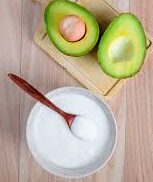
Almond Oil and Sugar Scrub
Mix almond oil with sugar to create a scrub. Almond oil is gentle, rich in vitamin E, and ideal for dry skin. Sugar acts as a natural exfoliant, removing dead skin cells and boosting circulation. This scrub leaves the skin smooth and revitalized, which is crucial in the dry winter months.
These natural remedies are cost-effective, easy to make, and free from harsh chemicals found in many commercial products. They utilize the natural properties of everyday ingredients to nourish and protect your skin during winter. However, it’s important to patch test any new remedy on a small area of your skin first, as even natural ingredients can sometimes cause allergic reactions.
Skin care tips for different skin types in winter:
Dry Skin
- Moisturize Regularly: Use oil based moisturizers to hold more moisture when compared with a cream or lotion. Packages with hyaluronic acid, glycerin or ceramides.
- Gentle Cleansing: Avoid harsh, drying cleansers. Use creamy, hydrating cleansers instead.
- Humidifier: Use a humidifier in your house, to make the air more moist.
- Avoid Hot Showers: Stripping your skin of natural oils to hot water. Opt for lukewarm water.
Oily Skin
- Lightweight Moisturizers: Use oil-free, non-comedogenic moisturizers that don’t block pores.
- Water-Based Cleansers: Use gentle foaming or gel cleansers to remove excess oil without over-drying.
- Exfoliate Moderately: Exfoliate once or twice a week to prevent buildup in pores.
- Blotting Papers: Use blotting papers to manage excess oil throughout the day.
- Hydrate Internally: Drink plenty of water to maintain hydration.
Sensitive Skin
- Fragrance-Free Products: Use skincare products that are free of fragrances and irritants.
- Gentle Cleansers: Use mild cleansers that don’t strip your skin’s natural barrier.
- Moisturize Effectively: Look for soothing ingredients like aloe vera, chamomile, and oatmeal.
- Test Products: Always do a patch test with new products.
- Avoid Extreme Temperatures: Protect your skin from harsh cold winds and avoid very hot water.
Combination Skin
- Balanced Moisturizing: Use a light, non-greasy moisturizer. You might need a heavier moisturizer for dry areas and a lighter one for oily areas.
- Gentle Cleansing: Use a mild cleanser that balances both dry and oily parts of your face.
- Exfoliate Carefully: Exfoliate mainly the T-zone area to avoid over-exfoliating dry areas.
- Use a Humidifier: This helps to maintain an even balance of humidity in the air.
- Sunscreen: Always apply sunscreen, as parts of your skin might be more prone to sun damage.
READ ONLINE:“Unlock the Secret to Balanced Beauty: Homemade Moisturizers and Packs for Oily Skin”
The Bottom Line:
Winter skincare is about adapting to the environmental changes and understanding your skin’s unique needs. By choosing the right ingredients and products, you can effectively combat the dryness, irritation, and sensitivity that often accompany the colder months. understanding the unique needs of your skin during colder months and adjusting your skincare routine accordingly, you can maintain healthy, hydrated skin. Remember, the key is in choosing the right products with skin-loving ingredients and taking a holistic approach that includes proper nutrition and protection against harsh weather. With these tips, you can enjoy the winter season with skin that feels as good as it looks.

